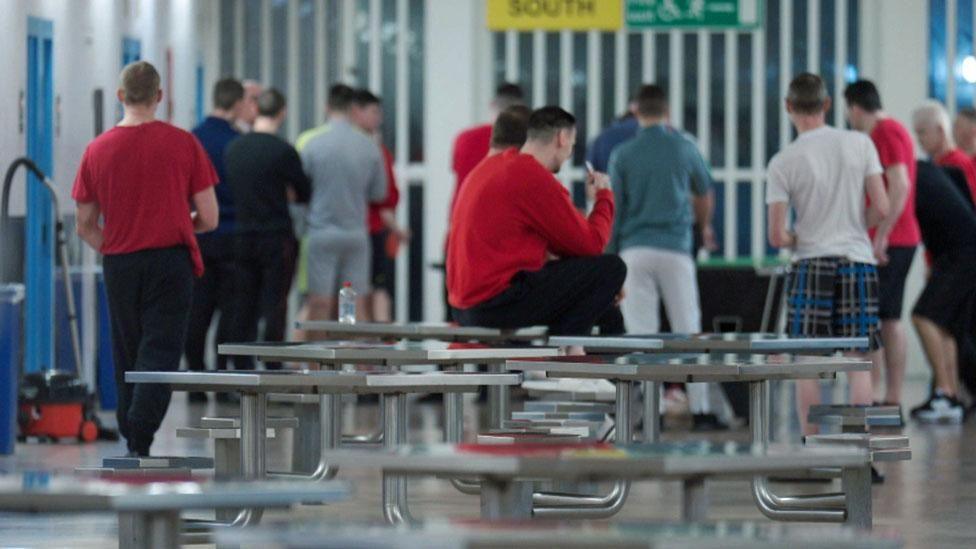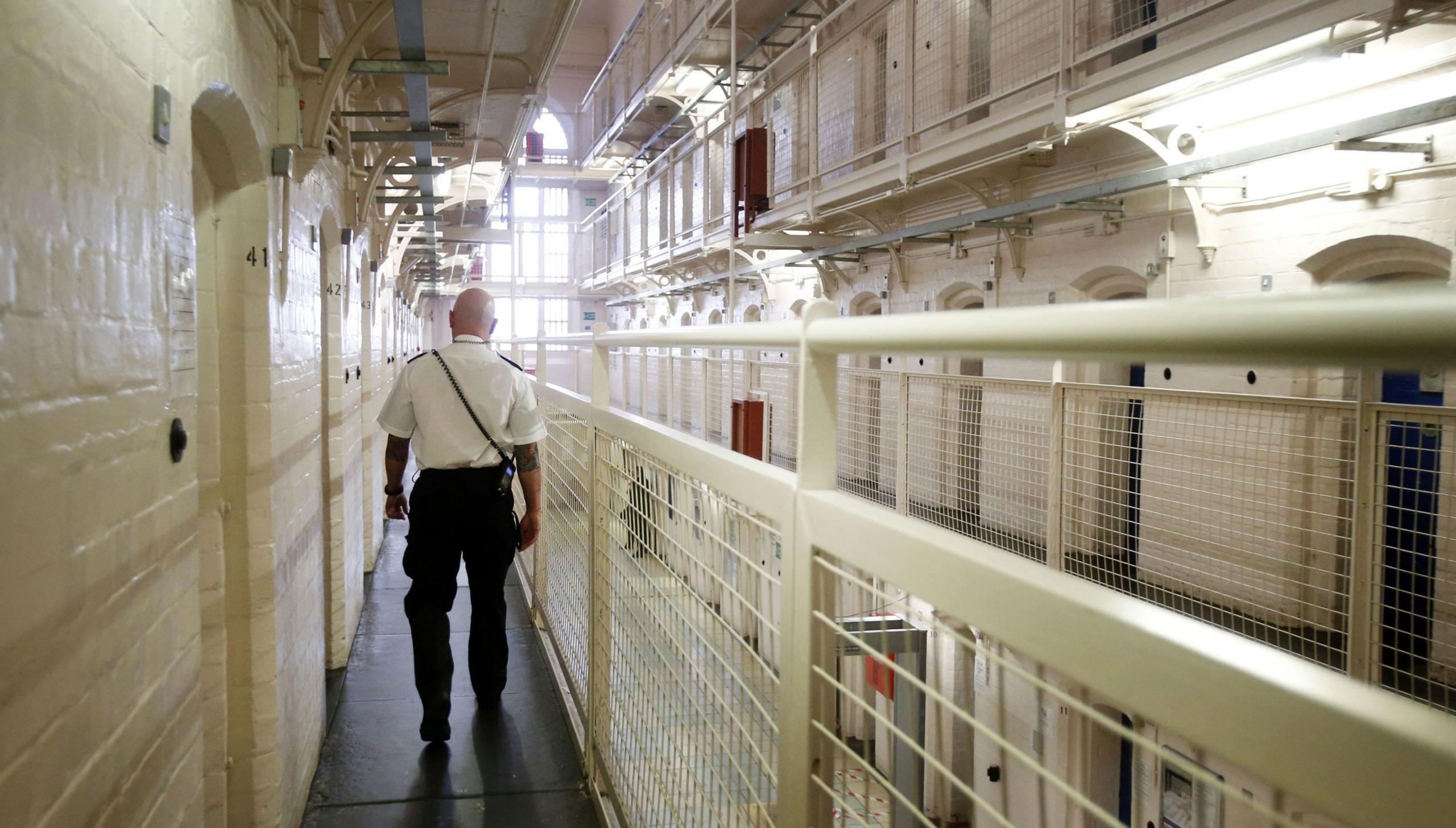Scotland's prison population higher after early release scheme

Scotland's prison levels were said to be dangerously high before 477 prisoners were released early in June and July
- Published
Scotland’s prison population is now higher than it was before hundreds of prisoners were released early in a bid to ease overcrowding.
A total of 477 prisoners were let out early in June and July under an emergency scheme introduced by the Scottish government in response to a sharp rise in the number of people in jail.
In the week before the programme began in late June, the prison population sat at 8,232.
It has now reached 8,241 - raising questions about whether further releases will be needed.
The release scheme involved prisoners who had been sentenced to less than four years in jail and who had less than 180 days still to serve.
It did not apply to people convicted of sexual or domestic abuse offences.
However, it has since emerged that more than a third of those who were released were serving sentences for violent crimes.

After four weeks of releases the prison population had fallen by 350 to 7,882.
But within a further three weeks it was back above 8,007 - the target capacity of the prison system.
The latest figures show there were nine more people in prison than there were before the release scheme started.
The Scottish Prison Service said the prison population “was already very high and extremely complex” and had “increased rapidly in recent weeks”.
Scotland's chief inspector of prisons had written to ministers in May calling for urgent action to cut the prison population, which was close to its highest level ever at the time.
At one point there were 8,365 people behind bars, the highest number since 2012.
Justice secretary Angela Constance said at the time that several prisons were "essentially full".
She also said the spike in prisoner numbers had “significantly increased the risk to the health, safety and welfare of both prisoners and SPS (Scottish Prison Service) staff, as well as to the security and the good order of the prison estate.”
'Sentences are meaningless'
The Scottish government now faces questions about what happens next, and whether a further round of early releases will be needed to ease pressure on the prison system.
A spokesman said “a number of actions” were being considered and that a range of measures were already being taken to “support a sustainable reduction in the prison population”.
He also said it was “vital that we ensure that safe, necessary operations in our prisons can continue”.
Victims groups described the figures as “really disappointing”, and said that early release had been shown not to work.
Kate Wallace of Victim Support Scotland said: “This is something we raised at the time. We saw it as a very short-term measure but I don’t think we could have predicted how short term.
“We have ended up not learning the lessons from Covid. We did early release then and exactly the same thing happened - the prison population bounced back and was higher than it had been before.
“The whole policy was sending a message to victims that they’re not important and that sentences are meaningless because we’re going to let people out early and that’s really difficult for victims”.
Scottish Conservative deputy justice spokesperson, Sharon Dowey, has called on the government to announce if this will lead to more prisoners being released.
She said: “This will only raise fears that the SNP will potentially release more dangerous offenders back onto our streets.
"The needs of criminals are always put over those of victims in the SNP’s justice system. Angela Constance should urgently come clean if there are any new plans to release more prisoners back into our communities considering these figures.”
A similar programme in England and Wales saw more than 1,700 prisoners released early on Wednesday in order to free up space for people who were jailed for their involvement in far-right riots in many English towns and cities earlier in the summer.
There has been no such disorder in Scotland.